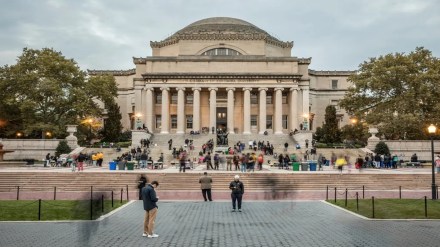The debate over the H-1B visa programme has escalated sharply in 2025, with the Americans calling for restrictions or outright bans. The visa scheme, which enables skilled foreign professionals, particularly from India, to work in the US, has come under renewed scrutiny amid mass layoffs in the technology sector.
While many Americans argue that Indian workers are ‘stealing’ American jobs, a claim that has fuelled resentment in certain communities, there are also Indian-Americans who are deeply frustrated with the lifestyle and behaviour of some fellow Indians in the US.
Online debate over Indian neighbourhoods
Much of the backlash has been amplified on social media. On X (formerly Twitter), several users alleged that parts of the US now host predominantly Indian neighbourhoods where, Americans are not welcome.
Areas cited include Spenard in Anchorage, Alaska; Crossroads in Bellevue, Washington; Telfair in Sugar Land, Texas; and Farmington Hills in Michigan, among others.
An Indian-American user admitted discomfort with the rising criticism, writing, “I am Indian American and I can see the reason for all the backlash against H-1Bs. Sorry and ashamed to say that all these stereotypes for Indians are very true.”
I am indian american and I can see the reason for all the backlash against h1bs.
— Draj (@Draj13573428) September 10, 2025
Sorry and ashamed to say that all these stereotypes for Indians are very true. https://t.co/eZJY7uZBBr
‘Want my kids to grow up in America. Not India’
The debate flared further after Daniel Keene, a Texas resident, posted a viral video showing people playing dhol and dancing on a street near Dallas. Though he did not explicitly identify them as Indian, Keene captioned the clip, “Typical view in my neighbourhood outside Dallas. We have to cancel the H-1Bs. I want my kids to grow up in America. Not India.”
Keene later claimed his wife had recorded the video because the group was blocking the road, adding that the atmosphere in the area felt like “walking the streets of Mumbai.” His remarks quickly drew both support and criticism, sparking a polarised debate over immigration, culture, and integration.
Some users sided with Keene, calling the street celebration disruptive and reflective of broader cultural changes. Others, however, defended Indian immigrants as “hard-working, polite and peaceful,” while criticising Keene’s remarks as racially charged.
One user wrote: “You’re a terrible person. I’ve never met an Indian family that didn’t add value to our country.” Another countered: “This is America! The melting pot of the world. If you’re implying you want your kids to grow up in White America, that’s another matter.”
The H-1B visa remains one of the most contentious aspects of US immigration policy. With Indians holding a large share of these visas, the debate frequently resurfaces during times of economic strain.
